 Bolshoi Theatre of Belarus
Bolshoi Theatre of Belarus
Bolshoi Theatre of Belarus
Bolshoi Theatre of Belarus
 Bolshoi Theatre of Belarus
Bolshoi Theatre of Belarus
Bolshoi Theatre of Belarus
Bolshoi Theatre of Belarus
┬Ā
ŌĆ£I turn to literary masterpieces not so much in search of plotlines, but rather in a quest to enrich the production with philosophical and intellectual ideas ŌĆō those that do not lie on the surface of the text, but reveal themselves upon a deep dive into the essence of the work.ŌĆØ This creative manifesto, as expressed by Boris Eifman, eloquently explains his enduring fascination with the works of great writers, especially Fyodor Dostoevsky, who stands as one of the foremost thinkers and artists in global culture.
The first ballet inspired by the work of the Russian author, The Idiot, was created by the choreographer as far back as 1980. In later years, choreographic interpretations of The Brothers Karamazov were born. The last masterpiece by Dostoevsky inspired two of EifmanŌĆÖs creations: the 1995 production The Karamazovs and the ballet Beyond Sin, which premiered 18 years later.
Crime and Punishment is the third novel of the ŌĆ£Great Five BooksŌĆØ interpreted by the choreographer through the expressive medium of dance. Remaining true to his artistic principles, Boris Eifman does not merely illustrate the canonical text. Instead, he accumulates the expressive and exploratory tools he has honed over decades of creative work to offer his own answers to profound questions about the inner nature of humanity, the significance of universal moral compasses, and the consequences of their downfall.
ŌĆ£Our production does not recount the storyline of the book; rather, it interprets through dance the emotional and conceptual universe of DostoevskyŌĆÖs central characters. Each of them is a microcosm, brimming with transcendent passions and facing insoluble metaphysical contradictions.ŌĆØ
Boris Eifman
The performances of Crime and Punishment to the music by Gustav Mahler and Boris Tishchenko will take place on 15 and 16 July.
The performances of Anna Karenina to the music by Pyotr Tchaikovsky will take place on 18 and 19 July.
Boris EifmanŌĆÖs ballet Anna Karenina is a true burst of inner psychological energy and is amazingly precise in delivering emotional impact upon its viewers. By setting aside all secondary storylines in Leo TolstoyŌĆÖs novel, the choreographer focused on the love triangle ŌĆ£Anna ŌĆō Karenin ŌĆō VronskyŌĆØ.
Using dance language, Boris Eifman in his ballet managed to portray the drama of a woman being reborn. According to the choreographer, it is the love passion, the ŌĆ£basic instinctŌĆØ which has led the heroine to the breach of the then current norms of social morality, killed motherly love in Anna Karenina and destroyed her inner world. Being so completely consumed and crushed by passion, a woman is ready for any sacrifice.
The choreographer says that his ballet speaks not of previous times but of today: the timeless emotional content of the performance and obvious parallels to reality canŌĆÖt leave the contemporary viewer indifferent. The brilliant technical mastery of the CompanyŌĆÖs dancers and Boris EifmanŌĆÖs astounding choreography present to us in a remarkably impressive way all the aspects and peripeteias of TolstoyŌĆÖs novel.
What is a more important goal in life: to maintain the conventional illusion of existing harmony between duty and feelings, or surrender to a sincere passion?.. Do we have the right to destroy our family, to deprive a child of his motherŌĆÖs care just for the sake of what our flesh lusts for?.. All these questions haunted Tolstoy in his times, and we canŌĆÖt avoid thinking them over again and again today. But answers are still far-off! What remains there is only our longing to be understood both in our life and deathŌĆ”ŌĆØ
Boris Eifman
The noted company from St. Petersburg already brought Anna Karenina to Minsk in the 2010s. In the same year, Eifman Ballet presented The Seagull to the music of Sergei Rachmaninoff and Alexander Sitkovetsky. In 2013, the Belarusian audience enjoyed Boris Eifman's new interpretation of Dostoevsky's novel The Brothers Karamazov. In 2015, the company brought Rodin to the Bolshoi Theatre in Minsk, in 2016 it was Red Giselle, and in June 2022, The Pygmalion Effect was presented on the Belarusian stage. In March 2024, the company presented the ballet based on the novel in verse by Alexander Pushkin, Eugene Onegin (staged in 2009), and a new choreographic interpretation of the play by Anton Chekhov, The Seagull. Ballet Story (premiere in 2022). In the summer of 2024, the Ballet Summer Festival at the Bolshoi began with performances of Boris Eifman's ballets Musagete and My Jerusalem; the performances were presented by pupils of the Academy of the renowned choreographer.
┬Ā
┬Ā
┬Ā
┬Ā
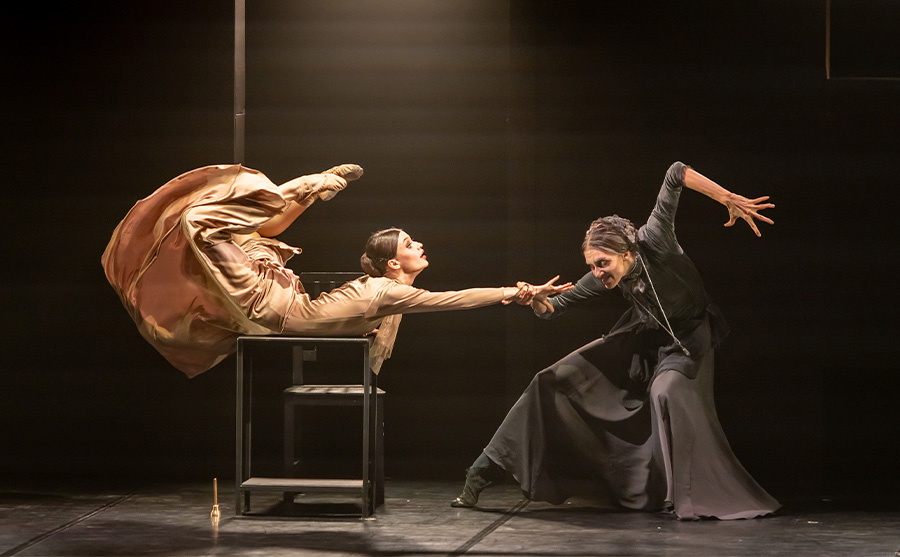
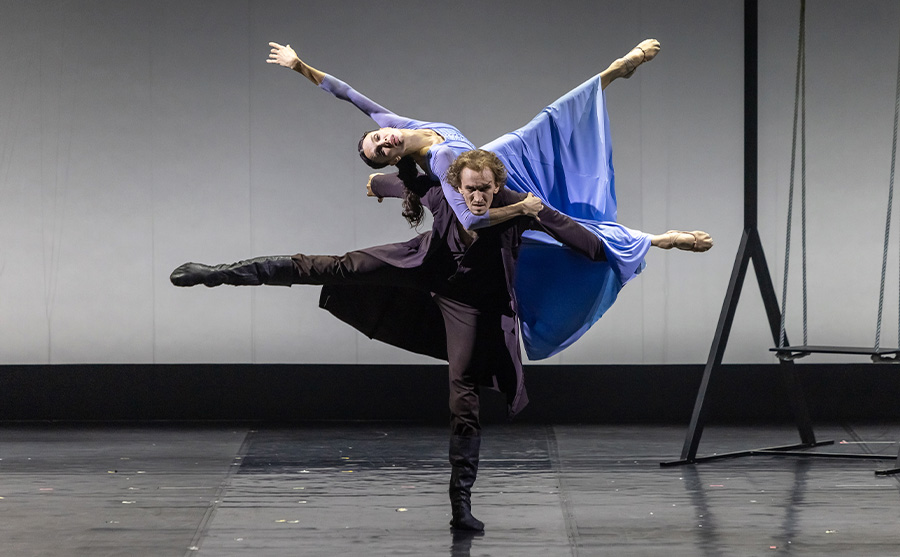
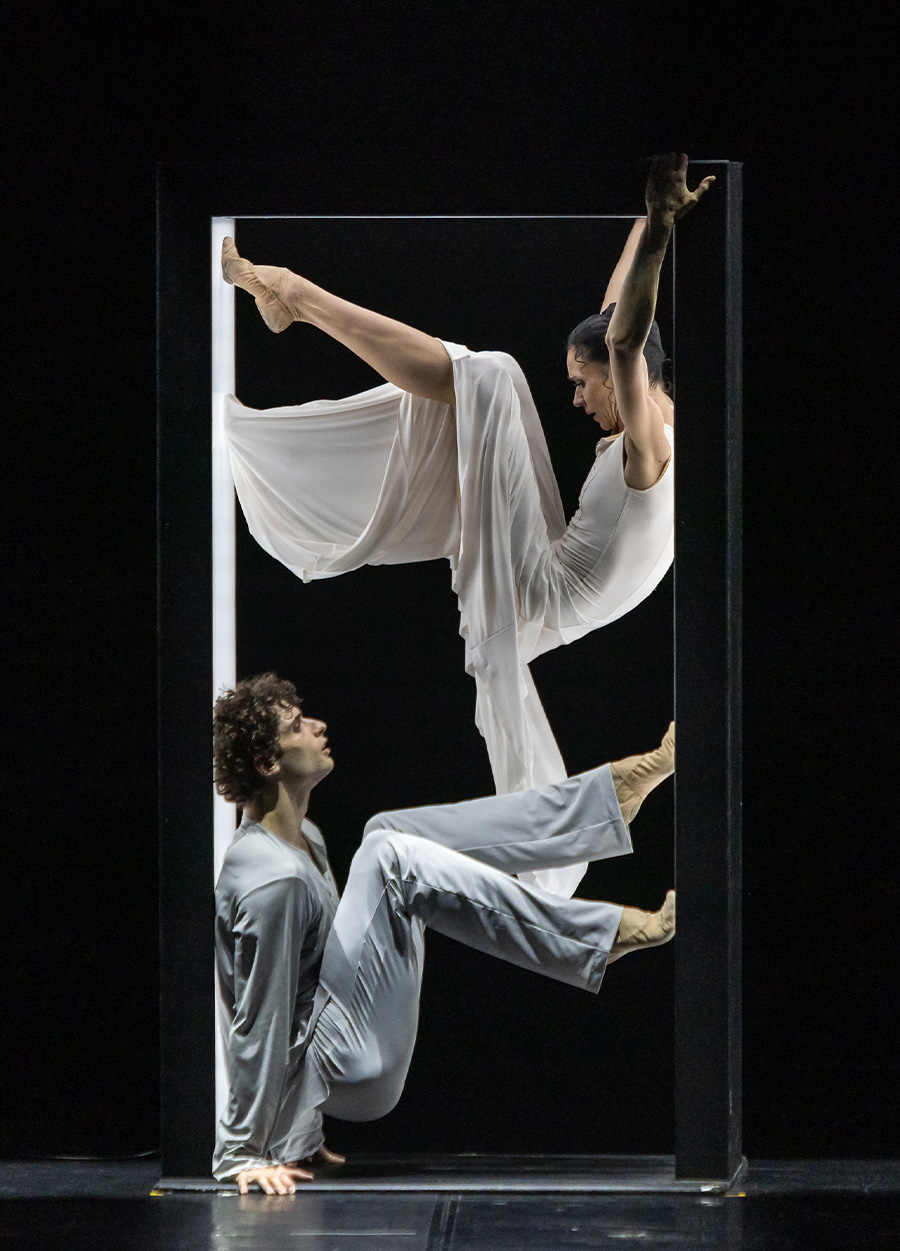
┬Ā
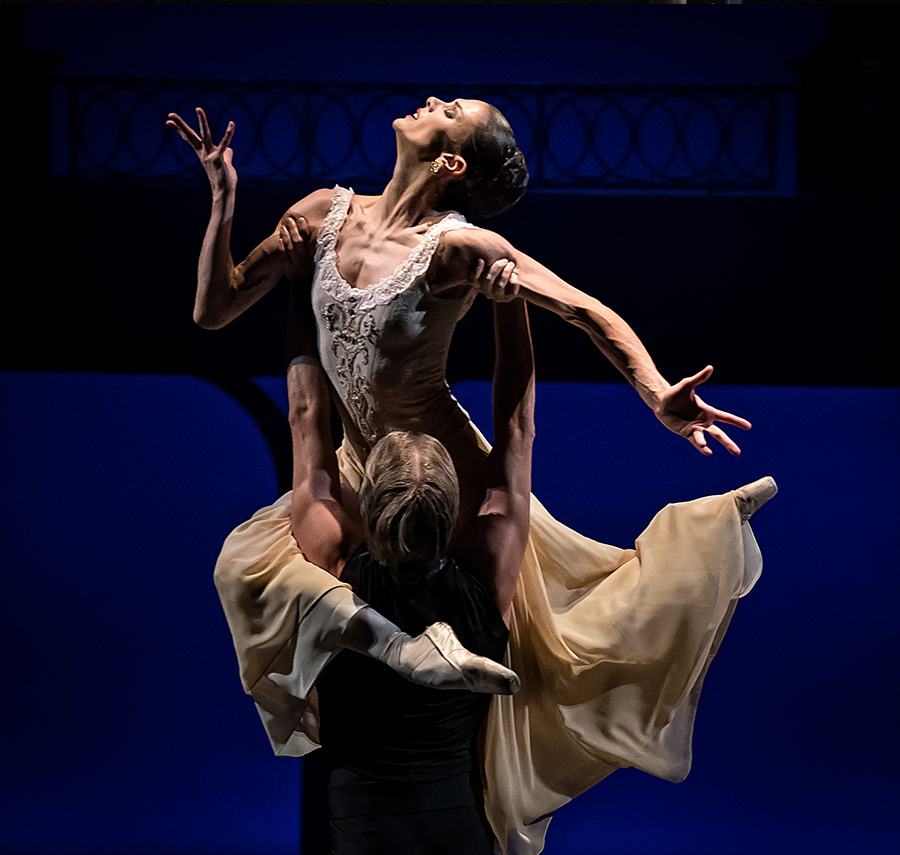
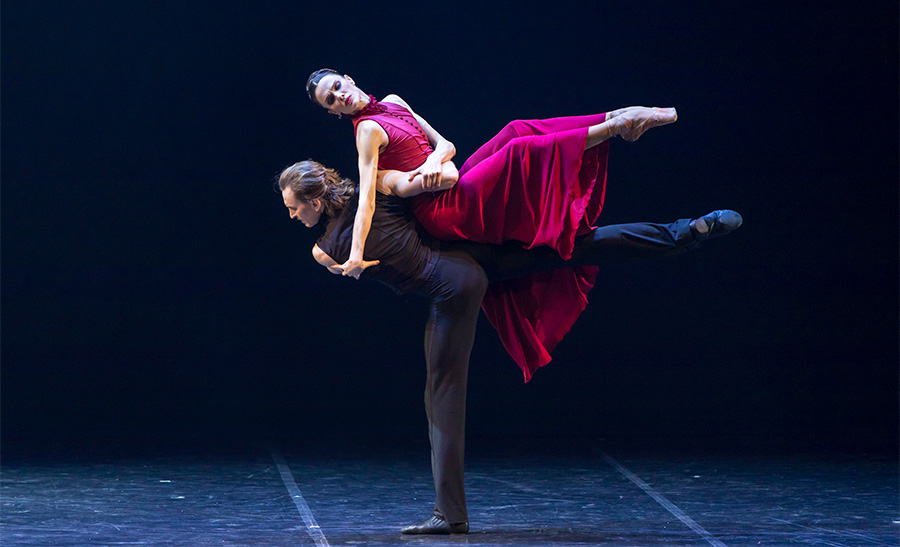
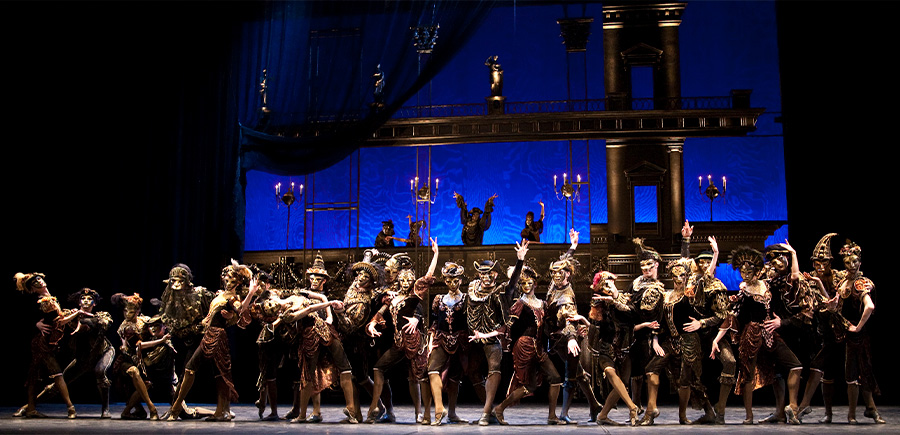
┬Ā
┬Ā
┬Ā
┬Ā